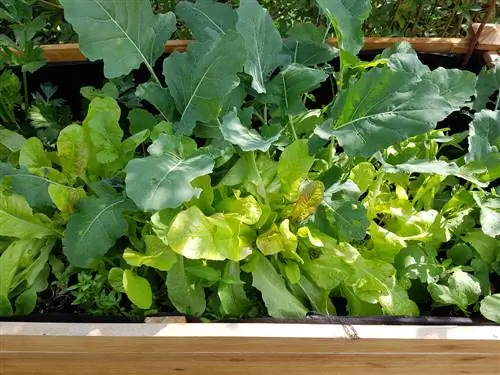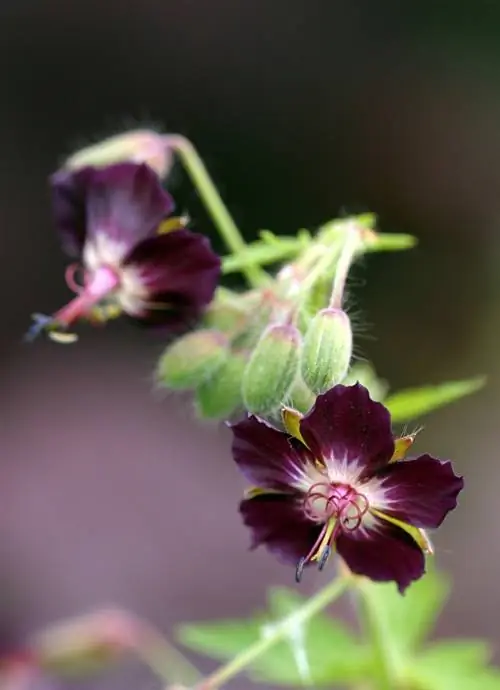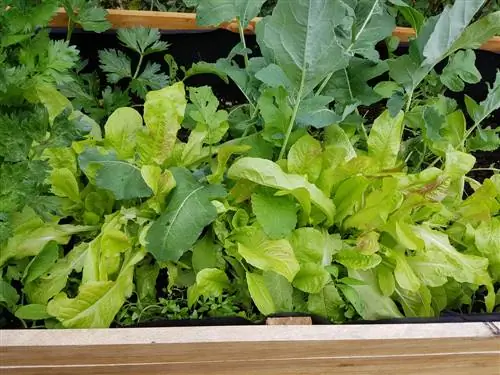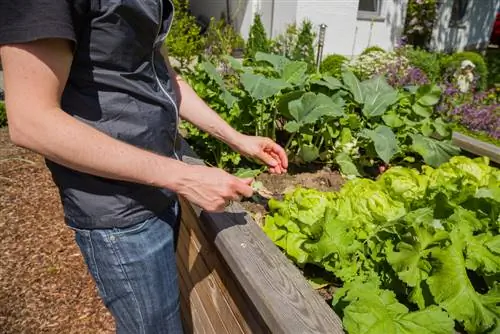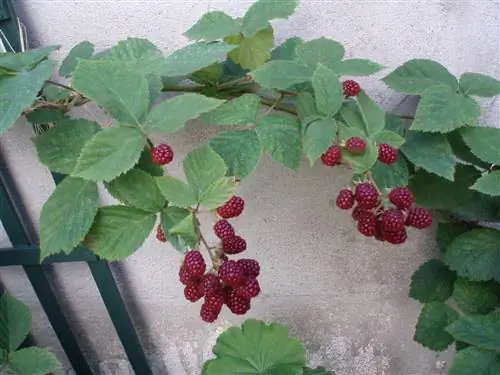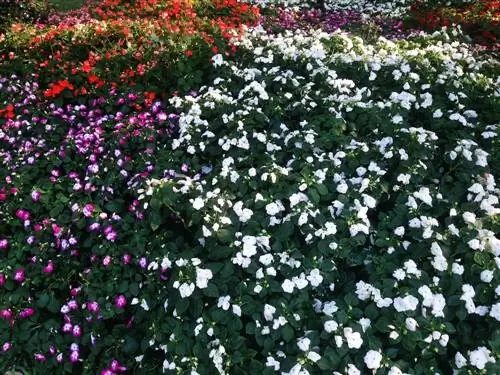- Author admin [email protected].
- Public 2023-12-16 16:46.
- Last modified 2025-01-23 11:21.
Each plant species has its own particular preferences when it comes to light. Some feel most comfortable in a warm, full sun location, others prefer a light spot. If you plant the plants in a location that is unsuitable for them, they will thrive more poorly - and in the worst case, they will die.
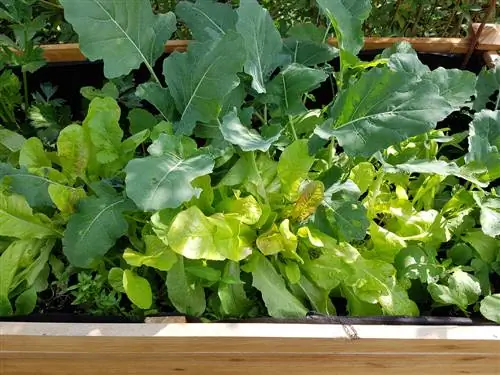
Which types of vegetables are suitable for a shady raised bed?
Vegetables such as carrots, radishes, parsnips, beets, onions, leeks, cabbages, lettuces, spinach, chard, rhubarb, beans, peas, broccoli and cauliflower are suitable for a shady raised bed. Soft fruits and wild strawberries can also thrive in light shade.
Not all shadows are the same
Crop plants in particular need a lot of sun to develop fruits and leaves. If there is a lack of sunlight, the fruits remain small, become less tasty and the plants become sickly. You should therefore only plant plants in a shady location that are specifically suitable for it - or at least tolerate it. However, there are also big differences among the shady locations: Some shady locations may only receive direct light for two to three hours per day, but are still quite bright - perhaps because the raised bed is close to fruit trees that provide shade. Other shaded locations, on the other hand, are very dark - the gardener calls them full shade - and hardly a ray of light finds its way there. Such places are, for example, in front of the north wall of a house or directly in front of a high, dense hedge. Naturally, light shade is more suitable for growing vegetables and herbs than full shade - this leaves only a small selection of suitable plants.
Suitable vegetables for shady raised beds
You can put many vegetables in the light shade, for example:
- Root vegetables such as carrots, radishes, parsnips, celeriac, beets and yellow beets
- Onions and leeks (leeks, spring onions)
- many types of cabbage, such as kohlrabi and kale
- Salads (corn lettuce, rocket, Asian salads like Pak Choi)
- Leafy vegetables such as spinach, chard, rhubarb)
- Bush and pole beans, peas
- Broccoli, cauliflower
For many of the vegetables mentioned, however, you must expect that the harvest will be smaller than in a sunnier location.
Vegetable plants like: still thrive in the shade
- Arugula
- Chicory salads (e.g. endive)
- other classic leaf salads
- Spinach and chard
- Kale, Brussels sprouts
Tip
Fruit, especially soft fruit or early-ripening apples and pears, can generally also be cultivated in light shade. However, due to the lack of sun, the fruits are not nearly as sweet as in a sunnier location. Exception: Typical forest fruits such as wild strawberries also thrive in a shady raised bed.

